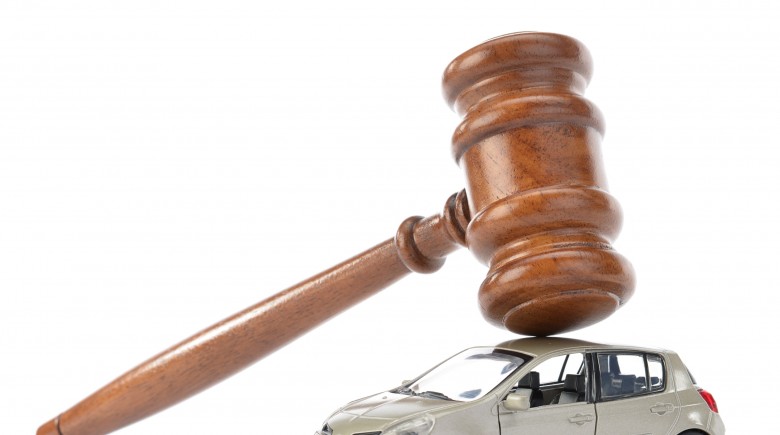If you want to get the best price on a car, or get more car for your money, you might consider buying from an auction. Perhaps you’ve heard success stories of people who’ve purchased a car at auction for less than market value and feel that you can score big. Understand, however, that buying a car at auction is quite different than going to the dealerships. These cars are often sold as-is, and there isn’t always a lot of time to inspect vehicles before bidding.
Buying a car at an auction can definitely save you money, and by paying cash for a car, you don’t have to worry about financing and monthly payments. However, before placing your first bid, educate yourself on how to become savvy bidder.
1. Know the car’s value.
There are plenty of online resources to help you determine the value of cars, such as Kelley Blue Book and Edmunds. This is important information, and without this information, you could end up paying more than the car’s worth.
2. Observe a few bids.
If you’re planning on buying your next car at an auction, attend a few auctions and observe other bidders in action. You’ll see the auction in action, thus preparing you for what to expect when you’re ready to place your first bid. Plus, you may see a few familiar faces, as some people buy and sell cars for a living or cash extra. Observe the bidding strategies of regular players and you’ll have a better idea of how to play the game.
3. Don’t get carried away.
Determine a budget before going to the auction and stick with this price. Auctions move very fast, with some places moving 20 cars an hour. With this said, there’s always the risk of getting caught in a bidding war, which can drive up the auction price. This isn’t a bad thing if you can afford to pay a higher price – and the price remains within market value. But if you let emotions and the excitement of the moment take over, you might excite your budget and pay more for the car.
4. Check the vehicle identification number.
Always check the vehicle identification number (VIN) of the cars that you’re interested in bidding on. Locate the VIN on the base of the car’s windshield. Once you have the VIN, compare this number with the number that appears on the door, the trunk and the hood. The vehicle identification numbers should match. If the numbers do not match, this indicates that the car may have been in a serious accident, in which several parts were replaced.
5. Check for flood damage or improper maintenance.
If a car sustained water damage or wasn’t properly maintained, this can create problems for you down the road. Finding rust stains under the seats or waterlines in the engine bay can indicate past water damage. Additionally, it helps to check the oil and transmission dipsticks. If you find deposits or sludge, this can indicate neglect by the previous owner, which increases the risk of problems in the future.
If you want to get the best price on a car, or get more car for your money, you might consider buying from an auction. Perhaps you’ve heard success stories of people who’ve purchased a car at auction for less than market value and feel that you can score big. Understand, however, that buying a car at auction is quite different than going to the dealerships. These cars are often sold as-is, and there isn’t always a lot of time to inspect vehicles before bidding.
Buying a car at an auction can definitely save you money, and by paying cash for a car, you don’t have to worry about financing and monthly payments. However, before placing your first bid, educate yourself on how to become savvy bidder.
1. Know the car’s value.
There are plenty of online resources to help you determine the value of cars, such as Kelley Blue Book and Edmunds. This is important information, and without this information, you could end up paying more than the car’s worth.
2. Observe a few bids.
If you’re planning on buying your next car at an auction, attend a few auctions and observe other bidders in action. You’ll see the auction in action, thus preparing you for what to expect when you’re ready to place your first bid. Plus, you may see a few familiar faces, as some people buy and sell cars for a living or cash extra. Observe the bidding strategies of regular players and you’ll have a better idea of how to play the game.
3. Don’t get carried away.
Determine a budget before going to the auction and stick with this price. Auctions move very fast, with some places moving 20 cars an hour. With this said, there’s always the risk of getting caught in a bidding war, which can drive up the auction price. This isn’t a bad thing if you can afford to pay a higher price – and the price remains within market value. But if you let emotions and the excitement of the moment take over, you might excite your budget and pay more for the car.
4. Check the vehicle identification number.
Always check the vehicle identification number (VIN) of the cars that you’re interested in bidding on. Locate the VIN on the base of the car’s windshield. Once you have the VIN, compare this number with the number that appears on the door, the trunk and the hood. The vehicle identification numbers should match. If the numbers do not match, this indicates that the car may have been in a serious accident, in which several parts were replaced.
5. Check for flood damage or improper maintenance.
If a car sustained water damage or wasn’t properly maintained, this can create problems for you down the road. Finding rust stains under the seats or waterlines in the engine bay can indicate past water damage. Additionally, it helps to check the oil and transmission dipsticks. If you find deposits or sludge, this can indicate neglect by the previous owner, which increases the risk of problems in the future.







